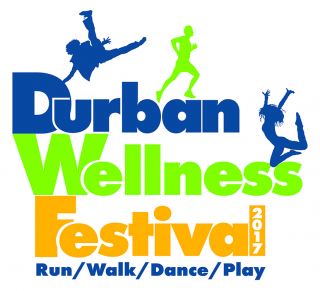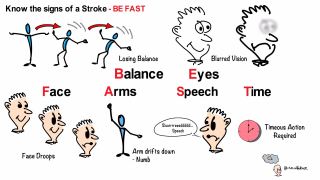The Durban Wellness Festival
STEP UP FOR HEALTH AT THE DURBAN WELLNESS FESTIVAL!
Diabetes may be the second highest cause of death in South Africa after tuberculosis but people are still in denial.
As most people only begin to look after their health when they have a scare and are forced to drastically stem their intake of fast food and begin exercising, the Durban Wellness Festival supported by SASA and Lilly has been created to show people that they can make positive, fun changes before it is too late.
The strong message from Jenny Russell, branch manager for Diabetes SA Durban, a non-profit organisation that provides support and wellness education for both diabetics and communities at large, is that diabetes is both preventable and manageable. “Get tested at the Durban Wellness Festival so you can manage this silent killer or, better still, learn how to live a healthy life the fun way,” she suggests.
The Durban Wellness Festival takes place on Saturday, November 11, 2017. It is a true celebration of all things healthy with live music and an expo that not only aims to raise awareness about the scourge of diabetes in South Africa but also to encourage people to look after the one thing that money cannot buy – their health. “Join us for either a 5km Run or Walk, a variety of entertaining activities, and a live performance by Durban singer and songwriter, Holly Wasserfall who also happens to be a type 1 diabetic.
This is a family affair, so everyone is welcome – even your pet dog. But on a leash, of course,” says Russell. Taking place at the Durban Amphitheatre at the Bay of Plenty, the Durban Wellness Festival will open for registration at 10am.
The Durban Wellness Festival officially kicks off at 2pm with the 5km walk and run starting at 4pm with the entire event finishing at 6pm with lucky draw spot prizes.
Russell adds that despite the light mood of the day, Diabetes SA will not be pulling any punches when it comes to driving home the reality of the diabetes pandemic. “Diabetes has become known as the Tsunami of the 21st century, killing more people worldwide than AIDS and cancer combined. Our main objective is to bring diabetes into the spotlight, in the hope that it gains the recognition it deserves, instead of remaining in the shadow of HIV, AIDS and Cancer.” To bring the message even closer to home, Russell states that the latest statistics received from a podiatrist doing her Master’s degree are absolutely shocking. “In 2014, 1,288,973 diabetic patients were registered in state health facilities alone in KwaZulu-Natal.
An unacceptable total of 2323 diabetic lower limb amputations were carried out between 2013 and 2014 in KZN. This amounts to six per day!” she points out. When you have diabetes, your body is either unable to make enough insulin, or it is unable to correctly use the insulin it does make.
As a result, the glucose in your bloodstream cannot move into your cells to be used as energy and thus creates a build-up, resulting in high glucose levels.Damage caused by elevated blood glucose levels is irreversible. Diabetes has been linked to cardiovascular disease, stroke, eye disease, kidney disease, nerve damage, lower limb amputations, sexual dysfunction as well as high blood pressure and high cholesterol.2016 Statistics from the International Diabetes Federation, the World Health Organisation and the Centre for Disease Control paint an extremely depressing picture.
Worldwide, 415 million people were diagnosed as diabetic as opposed to 35 million patients with HIV and 14 million with cancer. Every six seconds a person dies from diabetes-related causes. Every 10 seconds two people develop diabetes and every 30 seconds, a lower limb is amputated due to diabetes related complications.What is most startling, according to Russell is that statistics show that at least 50 percent of those with diabetes are unaware of their condition. “That means that those numbers are, in reality far higher. In some countries this figure may reach 80%. We have between 3 and 3.5 million diagnosed diabetics in South Africa. We also have an estimated 1.5 undiagnosed diabetics and approximately 1.5 to 2 million pre-diabetics in South Africa.” Children are also not immune. Worldwide, every year, 70000 children under the age of 15 develop Type 1 diabetes. Type 2 diabetes in children is becoming a global public health issue with potentially serious outcomes.
Thirty percent of children born since the year 2000 are expected to become diabetic if lifestyle changes are not made.95 percent of all diabetics are type 2 with 90 percent of all complications experienced by type 2 diabetics. “What is so frustrating is that this is preventable if people eat healthy foods and exercise. Hence, it is important to get the message out there and to continually try to educate people to make good lifestyle choices for both themselves and their families,” she concludes.
Supporters of the 2017 Durban Wellness Festival are SASA who are committed to the prevention and treatment of non-communicable diseases in South Africa, as well as Lilly Diabetes, who have been a global leader in diabetes care since 1923 when they introduced the world‘s first commercial insulin. Ninety years later, they remain committed to meeting the needs of people with diabetes from medicines to support programs and more.A major emphasis of Lilly’s work is to understand that people with diabetes should first be seen as individuals. Many of their programs and solutions are designed based on feedback from people who live with the illness every day.
The 5km Walk or the 5km Run costs just R60 per person with all proceeds going towards Diabetes SA Durban.
Please note that this organisation is a self funding organisation and does not receive any form of government funding and all proceeds raised go back into the education of this dreaded disease within KZN.
The Wellness Expo is free to the public.
For further information about this event, please contact Pat Bonini on 082 499 5222 during office hours or via email at This email address is being protected from spambots. You need JavaScript enabled to view it..
SA urged to give a ‘hand’ to stroke survivors on World Stroke Day - 29 & 30 October
South Africans are being challenged in the month of October to become advocates of stroke awareness and lend a hand to the survivors of stroke by learning to recognise the tell-tale signs of an brain attack while sharing the knowledge that enables rapid, effective response. World Stroke Day on Sunday, October 29 is being followed a day later (30 Oct) by the launch of a South Africa awareness campaign designed to destigmatise and demystify stroke by sharing relevant information with the public. The Turquoise Glove Initiative (TGI) campaign is run by the Stroke Survivors Foundation (SSF) with backing from King Edward School (KES), Adams & Adams Attorneys (IP Live Team) and Alexandra Clinic. Stroke – an injury to the brain or brain attack – is widely misunderstood, says George Scola, founder of SSF, a registered NPO formed by stroke survivors for stroke survivors. “There is urgent need for a campaign like this,” notes George Scola, “as so many misconceptions surround stroke. Some communities still believe stroke is evidence of witchcraft. Others wrongly believe women are immune.” “Awareness is low and information sparse. This must change.” TGI enables the public to show solidarity by wearing a turquoise glove for a day, with an example being set this year by campaign supporters KES, selected corporates and the Alex Clinic. Those taking up the glove only use the ungloved hand for the day, thereby experiencing the one-sided lack of function that can result from stroke. The TGI initative is used to create awareness, support and raise funds for SSF in the same way as pink ribbons create awareness for breast cancer.
The campaign’s educational message focuses on B.E.F.A.S.T (balance, eyes, face, arm, speech, time) as the signs of stroke include lost balance, blurred vision, a drooping face, arm weakness and slurred speech, while time is crucial for effective intervention. “Most stroke survivors may receive in-hospital speech, occupational and physical therapy. But on discharge there is little emotional and life skills support. SSF is addressing this need by creating a network of support groups. Greater public support will help us grow the network.” KES is driving youth awareness by taking up TGI. Pupils have also created their own youth awareness video, showing that stroke even afflicts the young. See video https://youtu.be/LNSGU8i7Xoc Alex clinic is hosting a stroke campaign event on launch day (30 Oct), inviting community members to learn about healthy living as a stroke defence. The clinic is also setting up community stations at which people can have their blood pressure taken and sugar glucose and body mass index measured as a guide to stroke risks. The selected corporates will take up the turquoise glove for an hour on launch day. Further information is available on the SSF website (http://strokesurvivors.org.za/). Says George Scola: “It’s vital we grow our database so we can help more people. We therefore call on stroke survivors and families to share their stories of survival and recovery by emailing This email address is being protected from spambots. You need JavaScript enabled to view it.
Please follow us on twitter @strokesurvivors and our FB page https://web.facebook.com/strokesurvivors/ “Take this opportunity, take up the glove and advocate for stroke awareness.”
The Stroke Survivors Foundation Contact
George Scola – 082 889 1800
www.strokesurvivors.org.za



